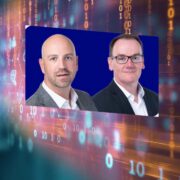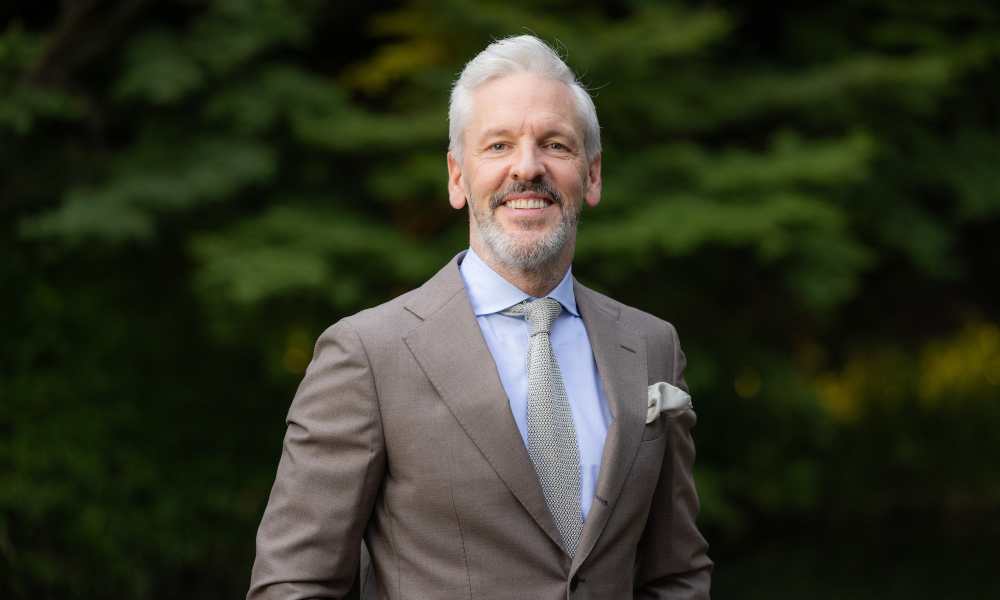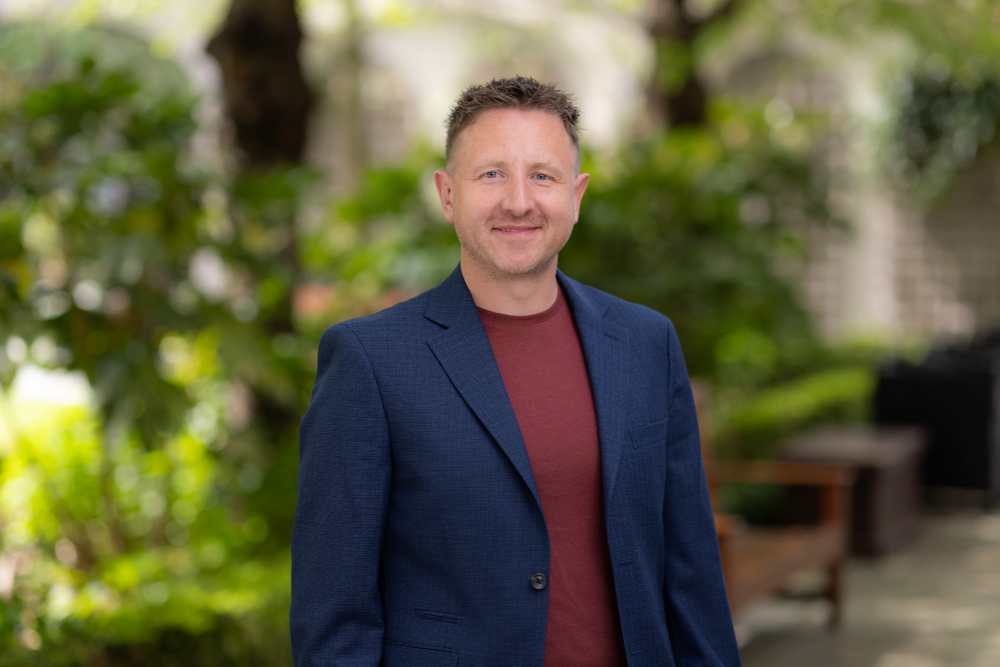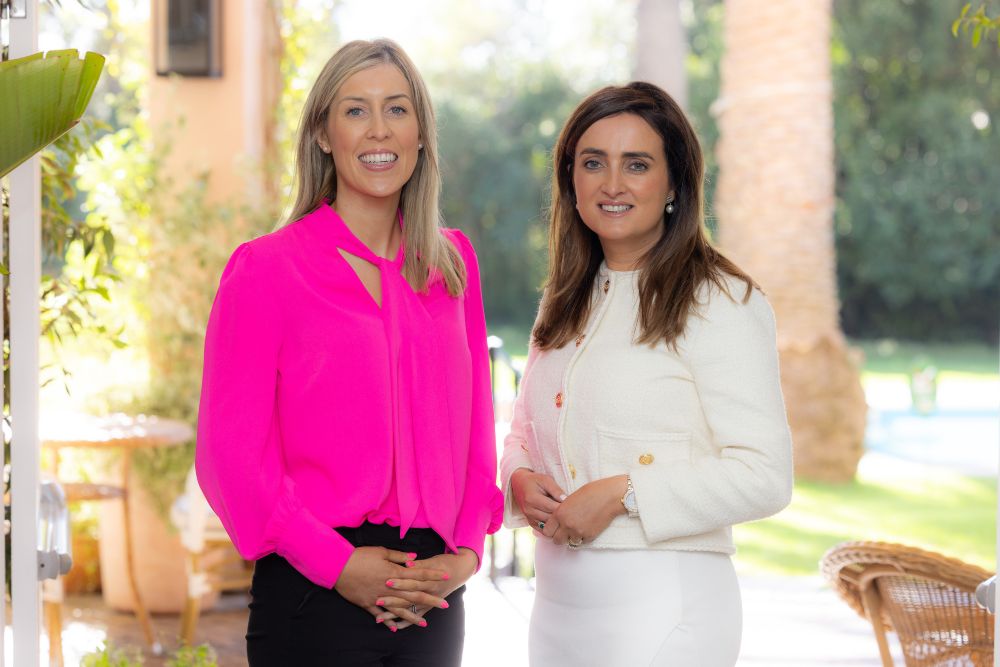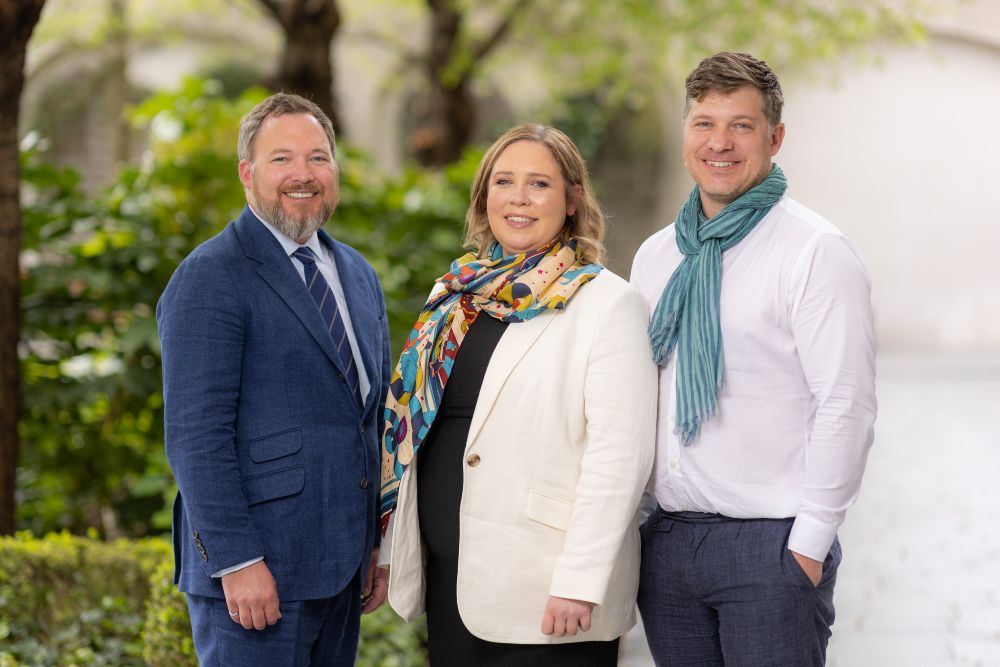EY Entrepreneur of the Year 2025 finalist David Corcoran on how his family’s scaling business Soltec kickstarted Ireland’s circular economy, turning hazardous waste into a valuable raw material.
In 1994, long before the words “innovation” and “sustainability” became the popular business buzzwords they are today the founder of Soltec, Mullingar businessman Michael Corcoran, was blazing a trail for the circular economy in Ireland.
He spotted an opportunity to take the hazardous waste generated by businesses like pharmaceutical firms and other manufacturers and distil this into a raw material that could be put to a myriad of uses, like paint thinners and hand sanitiser for example.
“We see waste as a raw material, not something dirty to dispose of”
In doing so Soltec became an industry leader in providing environmentally sound solutions for businesses across Ireland.
In 2011, his son David Corcoran, who has a background in environmental science, was appointed to the role of operations director. At the time the Irish economy was still reeling from the effects of the global financial crash and like many other employers at the time, tough decisions had to be made to keep the business viable.
Hazardous waste hero
David’s keen insights, hard work, resilience and the entrepreneurial nous he inherited from his dad have paid off and the business is scaling and targeting international growth. Soltec recently invested in a 5-acre waste treatment and recovery facility that will reduce Ireland’s reliance on the export of hazardous waste and that will double the company’s workforce.
Shortlisted as a finalist in the 2025 EY Entrepreneur of the Year Awards, David Corcoran is now the CEO of Soltec and his spearheading the company’s growth by diversifying its skills base across the fields of chemistry, manufacturing and engineering. In a nutshell, the business has developed new products and markets based on the hazardous waste it collects in Ireland.
Speaking with ThinkBusiness.ie, David recalled how his father Michael identified an opportunity in the market having noticed how automotive chemicals weren’t being disposed of properly.
“They were often ending up down drains. So he thought, ‘Well, we could collect those chemicals and maybe recycle them.’ He bought a distillation machine – similar to what you’d find in a whiskey distillery – to purify waste chemicals. The company started by collecting chemicals he had sold, bringing them back to our facility in Mullingar, and distilling them into paint thinner. It was a small operation focused on waste from garages and body shops in the Westmeath area, with just two employees.
David joined the business at a tough time in the Irish economy. “We were falling victim to the recession. As a waste management company, we depend on people generating waste, but businesses were struggling and holding onto waste longer to avoid disposal fees. Revenue was down, and we were losing money.
“Having worked in the company throughout my childhood and with my environmental management background, I decided to audit our revenue streams and figure out where we were losing money to turn the company around.”
It didn’t take long to realise that a large wage bill was crippling Soltec. “There wasn’t enough revenue to support it, so we had to make difficult decisions, cutting back staff and reducing people to three-day weeks. It was really tough, but we got through it. By around 2014/2015, as the economy started picking up, we returned to growth and profitability.”
In 2019 the business made the bold decision to invest €6.8m in a new 5-acre purpose-built facility. It was the correct decision,
“We realised that while the company was doing well, our facility wasn’t fit for purpose. It was very old and small, and lacked the infrastructure we needed for compliance and growth. We made the ambitious decision to move to an entirely new facility.
“Since we’re EPA-licensed and heavily regulated, this was a major undertaking. In 2019, we broke ground on a five-acre, purpose-built facility. I became CEO that year and took on the project of investing €6.8m over five years. This increased our capacity to treat hazardous waste by 300%.
“The transformation has been remarkable. Our staff grew from 12 people in 2019 to 30 now – that’s 20% growth every year for the last five years. Our distillation capacity went from 60 litres a day in the early 1990s to 24,000 litres a day now. The new facility allows us to take on bigger projects and treat waste in smarter, more environmentally friendly ways.”
Market position and sustainability impact
Even the challenges brought about by the Covid-19 pandemic didn’t affect Soltec’s renewed pace under David’s leadership. The business shrugged off potential closure by re-emphasising its purpose as an essential service and even pivoted into the manufacture of hand sanitiser.
With the increased capacity the business now transforms waste into valuable products including nail polish remover and paint thinners and it has even developed a coal alternative for the cement industry from distillation residue. Another area of activity is the recycling of aerosol cans by separating metal, liquid and gas components.
The core philosophy? “We see waste as a raw material, not something dirty to dispose of.”
Finding diamonds in the coal
The business currently treats around 7,000 tonnes of Ireland’s 380,000 annual tonnes of hazardous waste, signalling significant growth potential for the business. It is currently investing €3m in fractional distillation technology to prouce higher quality solvents for European export.
This will see Soltec grow its workforce from 30 to 50 people over the next three years.
“We’re the only company in Ireland that can recycle waste solvents on-island,” David explained. “The other hazardous waste management companies are large multinationals that focus on moving waste off the island to facilities in England or Germany. We’re finding increasing demand, particularly from pharmaceutical clients who want their waste recycled locally.
“The carbon impact is huge – our processes last year saved around 7,000 tons of carbon dioxide, equivalent to about half a million trees. Companies want to support the local economy, local jobs, and reduce their carbon footprint by not shipping waste overseas.”
Soltec counts some of the major pharmaceutical companies operating in Ireland as its clients. “They want their waste recycled, they want it done within Ireland, and they’re supporting local jobs in our area. It’s a good news story for them.”
He said the overall philosophy on waste needs to change, from being something to be disposed of to something that can be made use of.
“We follow the waste treatment hierarchy, starting with distillation as our highest-value process. We purify waste solvents and formulate them into products like nail polish remover, paint thinner, and hand sanitizer. For more contaminated or lower-quality waste, we developed a process with Enterprise Ireland to mix different chemicals to a known specification and supply it to the cement industry as a coal alternative. This helps them decarbonize their processes while keeping everything on-island.”
He says the potential for growth in Ireland alone is enormous. “We treat about 7,000 tons of hazardous waste annually out of 380,000 tons produced, so we’re still a small player with big scope for growth. We’ve only developed about a quarter of our site, so there’s room for expansion.
“We’re currently working on a new project called fractional distillation – a more advanced technology that produces higher-quality solvents with big resale value in Europe. This €3m investment over the next three years will grow our workforce from 30 to 50 people.”
David’s journey from graduate to CEO exemplifies how innovative thinking can transform environmental challenges and turn them into business opportunities that support sustainability and the circular economy.
On a personal front it’s about preserving and furthering his dad’s work. “It’s a great legacy. My father saw a gap in the market and developed a process to meet that demand. He’s still involved in the company, managing relationships with customers he’s had since 1994. Since becoming CEO in 2019, I’ve taken the company in a different direction – from local to national to an international player.
“There’s probably a sense of pride for him seeing the company grow to levels he couldn’t have imagined in the 1990s. It’s a good legacy rooted in sustainability, supporting a green and circular economy. We’re helping solve a real problem and changing Ireland’s approach from seeing waste as something to dispose of, to viewing it as raw material.”
Dreams do come true
Being nominated to the EY Entrepreneur of the Year shortlist has been a personal goal for Corcoran. “It has been on my radar for many years. I have fond memories of watching the TV series with my dad as a teenager, thinking that someday we might have a company at that level. It’s driven me to improve the company’s standards.
“This year felt like the right time, coming off the back of our major investment. It’s a childhood dream come true. The experience has exposed me to incredible opportunities – like the trip to Japan for entrepreneurial education and conversations with alumni.”
Corcoran echoes what many EY Entrepreneur of the Year finalists have said before, it isn’t about the gong but actually the fellowship of the alumni and becoming a part of that golden WhatsApp network.
“Running a business can be lonely – you always have to put on a smile and tell everyone everything’s okay. But with fellow entrepreneurs, you can have honest conversations about challenges. My company is very different from others, but there are common challenges every entrepreneur faces.”
-
Bank of Ireland is welcoming new customers every day – funding investments, working capital and expansions across multiple sectors. To learn more, click here
-
For support in challenging times, click here
-
Listen to the ThinkBusiness Podcast for business insights and inspiration. All episodes are here. You can also listen to the Podcast on:
-
Spotify
-
SoundCloud
-
Apple


